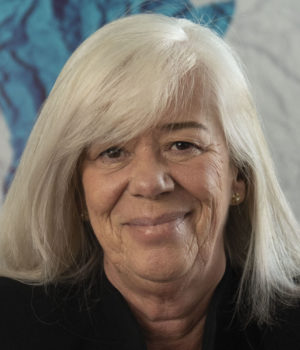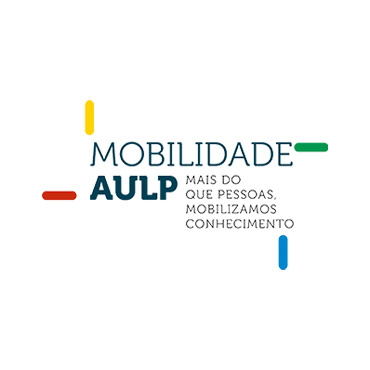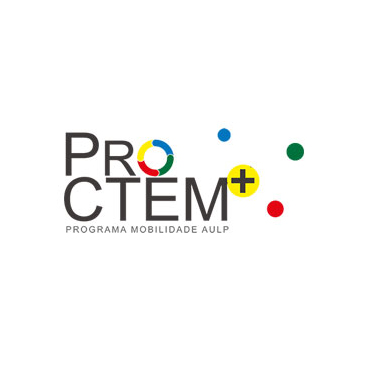“One of the important priorities of the AULP is the internationalization of the community of higher education of Portuguese speakers in the higher education world.”
Cristina Montalvão Sarmento
General Secretary, AULP
BIO
Cristina Montalvão Sarmento serve the global higher education community as secretary-general of the Association of Portuguese-Speaking Universities (AULP) since 2006, currently representing the organization in workings groups and expert committees, with a strong belief in the importance of international cooperation and intercultural understanding. Her background education includes a Ph.D. in Political Science, political theory (2004), post-graduation in Philosophy (1999); post-graduation in Political Science (1994); II Cycle in Geostrategy and International Relations, Institut Européen des Hautes Études Internationales in France (1987), after a first Degree in Law (1986) – Faculty of Human Sciences of the Portuguese Catholic University, and a second one in History (1997) – Faculty of Arts of the University of Lisbon. At the moment she is an Associated Professor with a habilitation in Global Studies at Lisbon University, Portugal. Areas of interest are the politics of HE Internationalization and, Global Challenges and Trends in HE. She was elected as a full board Member of IAU in 2022, a global NGO with UNESCO Associate Status, on behalf of AULP.
TBY talks to Cristina Montalvão Sarmento, General Secretary of AULP (Association of Portuguese-speaking Universities), about the organisation’s mission, the post-pandemic reality, and collaboration among Portuguese-speaking academic institutions.
Active in nine countries with 133 members; what is AULP’s mission?
AULP is an international non-governmental organization for development, founded on November 26, 1986, that promotes cooperation and the exchange of best practices between universities in the Portuguese-speaking community. With more than 130 members from eight Portuguese-speaking countries—Angola, Brazil, Cape Verde, East Timor, Guinea-Bissau, Mozambique, Portugal, São Tomé and Príncipe—and Macao (RAEM), our mission is to ease communication between our associated members for the collective development of Higher Education of the Portuguese-Speaking community. We propose continuous reflection through the daily dissemination of scientific articles and the organization of conferences and events.
What are the top priorities of members?
One of the important priorities of the AULP is the internationalization of the community of higher education of Portuguese speakers in the higher education world. In addition to consolidated international cooperation, members benefit from the Association’s multicontinental dimension. Its presidency rotates every three years, it changes between continents, so priorities can be strategically shifted in line with different aspects of higher education frameworks. Currently, the Presidency of the Administration Board, belong to the University of Coimbra, in Portugal, Europe, after having belonged in the last term to Angola, Africa, and immediately before to Macau (RAEM), China, after Mozambique, Africa. The internationalization effort of the AULP is also materialized in the participation on the bord direction of the IAU (International Association of Universities – UNESCO) and the Vice-Presidency of the UCCLA (Union of the Capitals of Portuguese Speaking Countries). Among the listed activities carried out by AULP, which can be appreciated at https://aulp.org/, we highlight the AULP Mobility Program (www.mobilidade.aulp.org) as a student mobility program inspired by the Erasmus+ Program. The AULP Mobility Program is the first academic mobility program that exclusively covers the exchange of students in any field of higher education between institutions from Portuguese-speaking countries and Macao (RAEM).
What has been your experience with the mobility program and what must happen to increase the volume of students in the program?
With the AULP Mobility Program, we have managed to mobilize more than 250 students despite the various constraints caused by the COVID-19 pandemic. The AULP has annually received more than 2000 applications from students who want to participate in the program. Our experience tells us that there are currently three major barriers to student mobility. The first barrier is economic constraints, followed by problems with issuing visas (which often delay their issuance, which means that the student is unable to travel on time), and finally cultural issues. To mitigate these barriers, AULP is looking for partners who finance scholarships. In parallel, the AULP has been carrying out several online training courses and has started to provide technical assistance to the various PALOP-TL higher education institutions to promote programs and scholarships.
What mechanisms are in place to heighten the level of collaboration between members and the private sector?
AULP seeks to develop partnerships with organizations or companies that want to finance scholarships for students under our AULP Mobility Program. AULP currently has partnerships with the Organization of Ibero-American States (OEI) with travel grants; also, PROCULTURA grants resulting from a partnership with Camões I.P. and the CPLP within the scope of the project PROCULTURA PALOP-TL – Promotion of Employment in Income Generating Activities in the Cultural Sector in the PALOP and Timor-Leste, financed by the European Union, co-financed and managed by Camões, IP (Delegation Agreement FED/ 2019/405-279). Furthermore, AULP obtained the status of Portuguese Erasmus+ Office, having recently obtained funding for the attribution of scholarships to students and teachers from the PALOP-TL (Angola, Cape Verde, Guinea-Bissau, Mozambique, São Tomé and Príncipe and Timor-Leste) and from Portugal. AULP is currently drafting new applications to finance mobility in the areas of health (ProSaúde+) and Science, Technology, Engineering and Mathematics (ProCTEM+). Partnerships between the AULP and the private sector, would be very important for higher education institutions in Portuguese-speaking countries in general, to train their students and technical staff that enable the development of these countries and the reduction of inequalities between countries according to the United Nations Conference on the Sustainable Development Goals (SDGs) until 2030.
How do you envision collaboration among Portuguese speaking academic institutions into the future? What is the development potential of the bloc?
With the implementation of the various international mobilities, it is expected to guarantee the recognition of students’ credits in mobility and the issuance of certificates of studies or supplements to diplomas to recognize the period of international mobility in a way to bring higher education systems closer. Additionally, AULP’s actions towards the network guarantee the follow-up of students to support their reintegration and give them the opportunity, in return, to build student networks, undertake or work in the labor market of their country as well as be ambassadors for the dissemination of AULP projects and values. Furthermore, professors participating in the mobilities will be recognized for their teaching activities abroad through the issuance of mobility certificates and follow-up is guaranteed for their continuous training, implementation of new study programs or joint research projects. The exchange of experiences and mobilities promoted by the AULP either through its Annual Meetings with all higher education institutions in its network or through the Mobility Program, improve the interpersonal skills of students and teachers, their capacity for resilience, verbal communication, conflict resolution, and, among other aspects, the ability to develop critical thinking. As a whole, aims to create active young people who participate in the world of work but also in creating more just, democratic, inclusive, multicultural, and independent societies. The joint participation of the institutions that are part of will accompany the academic excellence of the institutions themselves.
A Secretaria-Geral da AULP, Professora Cristina Montalvão Sarmento foi entrevistada pela Revista The Business Year





